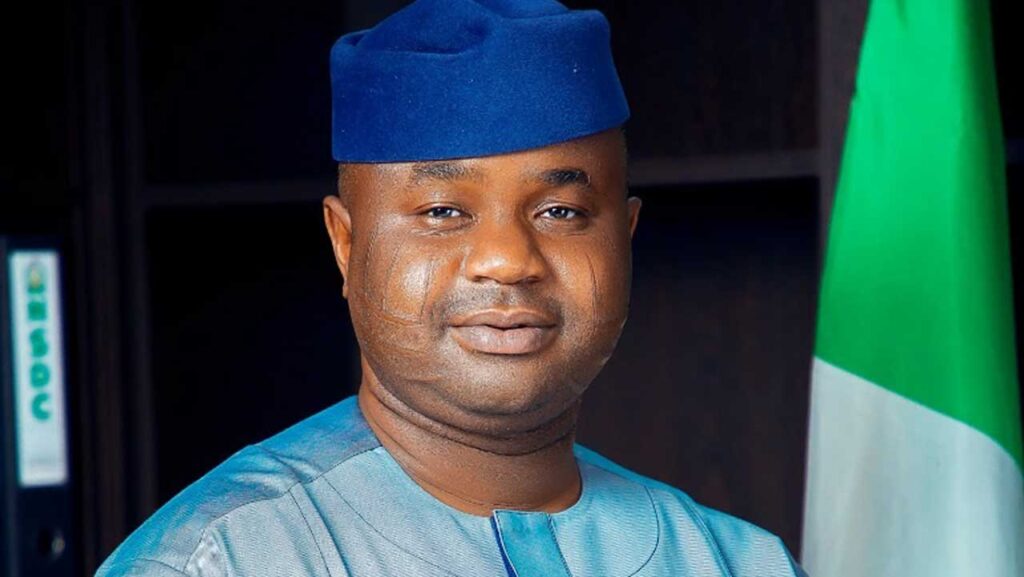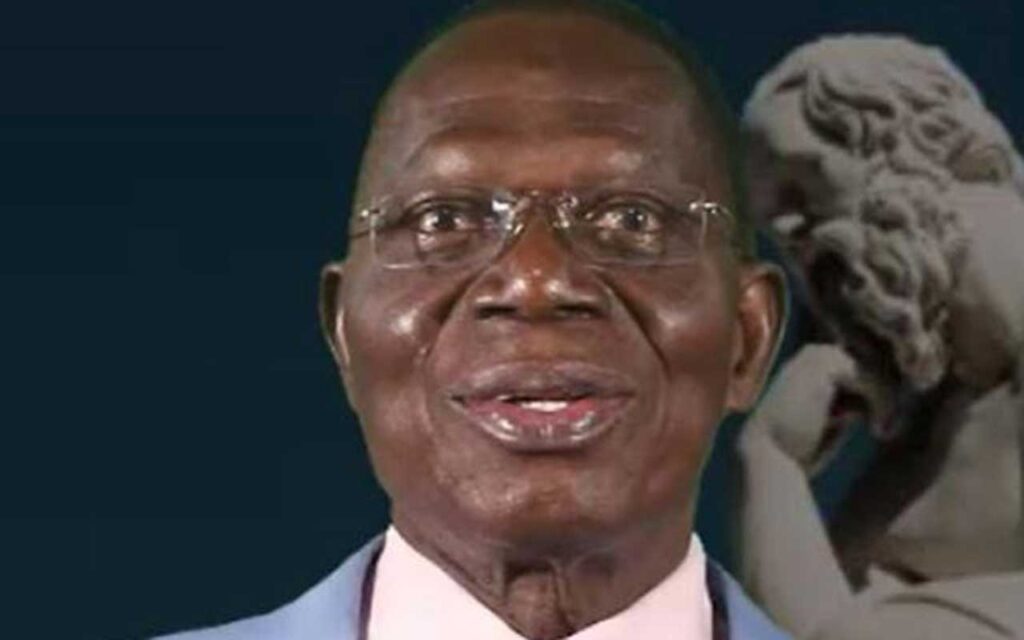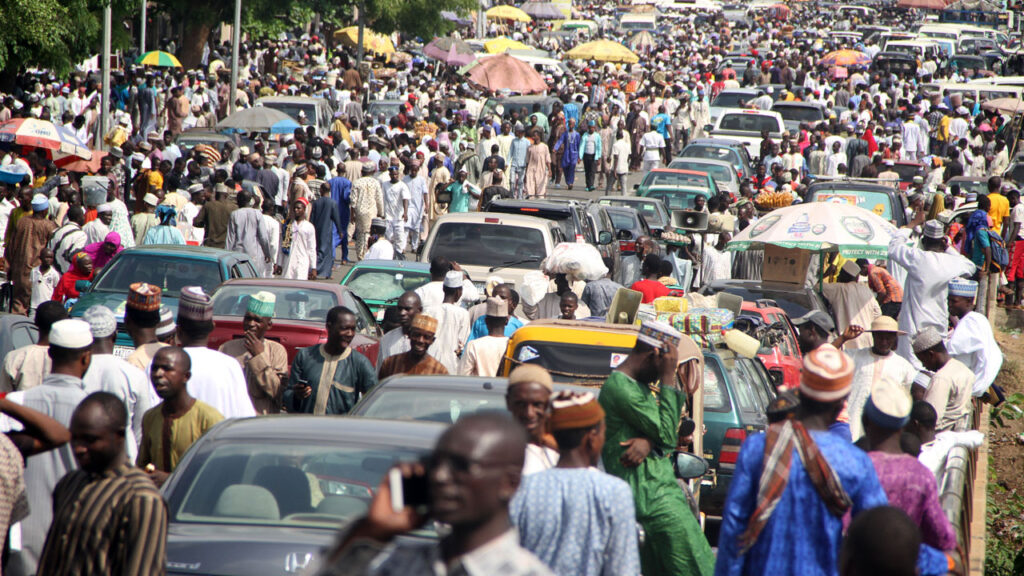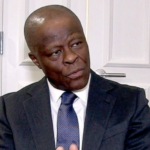 Since the Industrial Revolution, no country has developed nor can develop outside industrialization. The major characteristic of industrialization is that it thrives only on the economy of scale based on the capacity for mass production and access to mass market. The U.S. is a perfect example of a country that has been able to achieve these.
Since the Industrial Revolution, no country has developed nor can develop outside industrialization. The major characteristic of industrialization is that it thrives only on the economy of scale based on the capacity for mass production and access to mass market. The U.S. is a perfect example of a country that has been able to achieve these.
If Nigeria does not industrialize, especially through agricultural mechanization, there’s no hope for her political and economic survival. But the problem is, the division of Nigeria into mini, dependent, parasitic, unviable states that represent economic close circuits but tied to the apron strings of Aso Rock, is a dis-incentive, even an antithesis of industrialization. Standing alone, none of these weak states has the financial capacity to establish the kind of industries that can guarantee global competitiveness.
Indeed, if cooperation and economic federation are being pursued at both regional and continental levels for obvious reasons even among the sophisticated economies of Europe, Asia, Latin America, even the United Arab Emirate, the viability of mini-state-based economy in Nigeria becomes glaringly an exercise in futility.
What then to do? First, I suggest the creation of four, at most six, geo-political- cum industrial zones based on raw material competitive advantage(s) of each zone. This will encourage both complementarity and healthy competition among the zones. Second, the zones must mechanize agriculture for both mass both output and value addition.
It is necessary to warn that if we delay to mechanize agriculture and industrialize our economy, but instead continue with the traditional export of mere primary commodities that are losing both monetary and intrinsic values in the international markets, Nigeria’s economy is doomed. Consider this: because of the failure to industrialize as a driver of economic diversification, Nigeria remains stranded at both ECOWAS and AfCFTA levels. This is so because, given the competing, non-complementary nature of Africa’s primary products, Nigeria can only export the primary products that the other member states are trying hard to dump on Nigeria. But then, Nigeria is not even producing enough to meet its local consumption, not to talk of exporting.
It is wrong to label people that call for restructuring as unpatriotic. On the contrary, they realistically say that Nigeria is not working. They are the true nationalists who believe that because Nigeria can soar like an eagle, it’s time it stopped flocking like turkeys. This not to say that Buhari is incapable, but that this geographical expression has hardly truly worked and, as presently operated, cannot work.
However, I think this country can be made to work by reinventing a new Nigeria in two possible ways. On the one hand is the American way whereby the most extreme diversity was crafted and forged into a nation of 320 million with one language, one national philosophy, one ideology, one destiny under God. They can see that no geographical space of 200 million ethnic nationalities actively promoting 300 ethnic, cultural, philosophical, and, above all, religious contradictions can ever make it. There’s no living example where such a contraption has ever worked; nothing suggests we can make it work here.
Because we must industrialize to survive – and we cannot industrialize as we are, mentally, structurally, attitudinally, constituted at present- what other name do we give the inevitable process of reorganization that can save us from certain descent into the economic abyss? Some call it ‘restructuring’. Proponents of restructuring are convinced, and rightly so, that if it isn’t working, it’s got to be fixed. Call it whatever you will, as long as it jumpstarts the subliminal capacity for productivity that Nigeria so desperately needs, it is fine with me.
With our current democratic practice, we are smelling the appetizing aroma of the American sauce, we are trying to brew same but without the ingredients which is tantamount to wanting to omelet without breaking eggs. It ‘ain’t gonna happen’.
On the other hand, some think that to forge the American model in Nigeria appears as Siberia, a place everybody knows where it is but nobody wants to go. Going down that lane appears impossible. Christians will want to remain Christians, Muslims will want to remain Muslims, each struggling for supremacy within an entity where they operate mutually exclusive existential philosophies and even alternative constitutions that occupy a pride of place over the national constitution. There are people who, it seems, can live with mediocrity, who pontificate on a Nigerian Eldorado boat that shouldn’t be rocked, who reduce the country’s burning question to the level of personalization.
On the other hand, reformists believe, that the best we can do is to re-engineer the management of our diversity; it is myopic, even self-serving mischief, to conclude that this translates to a suggestion at balkanization. It is not at all.
The imperative to restructuring Nigeria is increasingly urgent. And this is not, should not be, about Buhari. He may be doing his best, but not even the best leader can function where the rest of the people work at cross purposes. Nigeria is for all of us. We all want it to succeed. Never mind that we see how to do it can lead to often contradicting perspectives. It is natural and should be so because we think differently depending on the context and the circumstance.
For example, I published an article in 2015 liking Buhari to the biblical ascetic and altruistic Moses anointed to take the Israelites to the Promised Land. Today, I know better. Not necessarily that Buhari has failed, but that there was no way he could have done better under the conditions he is operating. This has taught me that if the system is not fundamentally reorganized, (restructured), even the best leader will fail running it. Therefore, railroading us into a one-way combination of pseudo nationalism and personality cult is not good for this country. Nigeria na we own, we must to make am work.
The pertinent question is: what are opponents of a holistic reform or restructuring, bringing to the table to make their country rise to the greatness it deserves? For, to think that the present situation is perfect and must not be tinkered with is simply preposterous.
I am not impressed by the rhetoric of altruism where social reform is put at the doorsteps of a vastly ignorant citizenry. That is a utopian philosophy which can only work among celestial bodies that have been created in a state of perfection. Nigeria’s leadership across the board, or shall I say Nigeria’s elite, must accept now that a comprehensive reorganization of their country is urgently required. And get to work on it immediately, if they truly desire a country worthy to be so called.
Nigeria must restructure to properly function in the community of nations. The immediate two things to do quickly are: first, de-emphasize the political intra-ethnic coloration and the syndrome of who-gets-what of a shrinking ‘national cake’. For, this seems to be the core of the cry for restructuring. Second, we need to focus on and redirect the narrative to making Nigeria an industrial economy of global standing. The alternative is Nigeria’s disintegration into penury and irrelevance. ‘Pity the nation’, wrote Lebanese poet Khalil Gibran, ‘divided into fragments, each fragment deeming itself a nation’.
Arokoyo, Ph.D. lives alternately in Lagos and Benin Republic.













